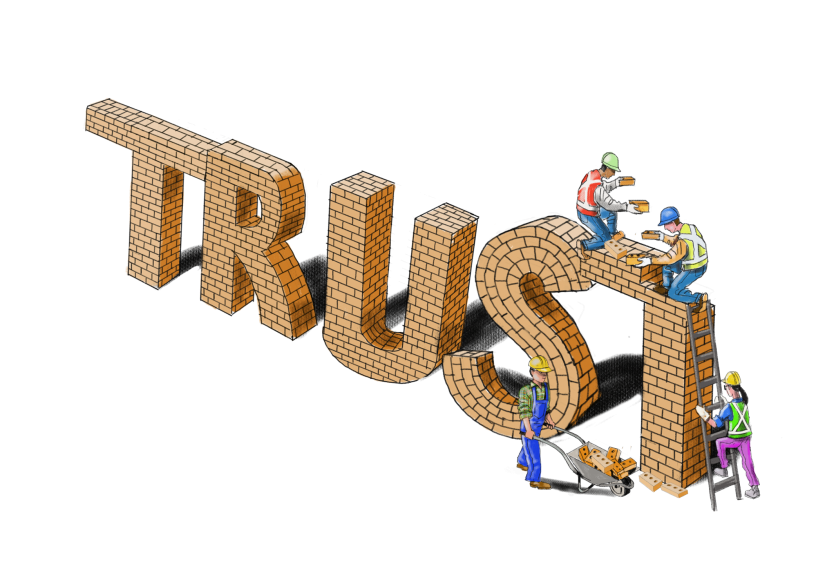About a year ago, I asked a crazy question. What would it take for audiences to fall in love again with journalists? As I say, crazy. Fortunately, my query evolved: what will it take for audiences to trust the news media again?
That set myself, my colleague Sacha Molitorisz, and a ring-in, Claire Marshall, a first-rate facilitator and thinker, on a journey into the heart of trust and journalism.
We first sought to understand what others had done. The answer is, quite a bit. Here’s a link to the trust biblio compiled by CMT researcher Elaine McKewon. It’s useful for journos to know what academic types are saying.
Then we got down to the task at hand. We received some money via the Facebook-funded APAC News Literacy Working Group and went in search of trust. Here’s a link to a flipboard version of the full report, so you make up your own mind about what we found. (There’s another link below, if you can wait.)
Not everyone will agree with what we’ve written. Some might even say we were sucked in by Facebook’s charm offensive and that we are missing the point: it’s the digital platforms who ruined trust in journalism by allowing dis- and mis- information masquerading as news to be weaponised.
The results of our workshops, two each in Sydney and Tamworth, don’t really bear that out.
Yes, there’s no denying the impact of social media in spreading what some call fake news. There’s also no denying there’s a bigger problem afoot: people seem to have lost trust in many institutions. Those issues and several others are very much part of the debate.
But we wanted to explore what our participants thought about journalism. How are things in the J-garden for you, we asked. Well, in short, pretty weedy. Many people in our workshop had simply lost faith in us. Some have not. Here’s a link to a few couple of quotes and their context.
A further point here is that our report isn’t about us, the researchers. It’s about them, the audience(s). Sure, we had some ideas to test of our own, such as, did the participants want journalism to be ‘more like a friend’? Solid negative to that, by the way.
But we were more interested in the suggestions of the workshop participants. We asked news consumers to describe the problem as they saw it and to come up with solutions — their solutions.
What we wanted — and I think got — was some constructive answers and pointers to a re-focused and re-imagined relationship between journalism and its audiences.
We kept our workshops relatively small in number — though not time — because we were interested in a deep dive to explore what news users and in some cases journalism abusers, actually want. We wanted quality over quantity.
You could say what they want isn’t much: be accurate, be in the public interest and objective.
In other ways, it will be more of a challenge. Here’s a word to think about: transparency.
It is very clear to me that audiences expect to know what journalism is doing and why. They want to be in the loop. Yet, they see journalism as part of the conversation but not the whole conversation. They see journalism as an information source but not the only one.
When we asked people in Tamworth, for instance, where would they go to check out a rumour that the town’s country music festival was to close down, several of the participants immediately replied the council website.
Journalism can no longer expect exclusive authority.
Our participants were also pretty clear about another, related aspect: they don’t want journalism or anyone else hiding behind an institutional wall or a fake social media account.
The people we engaged with during this study came from all sort of backgrounds and demographics but one clear thing united them: none of them was a fool.
Have a read of the report. You might agree with me. You might not. Let me know.
...
Download a copy of the report here:
Peter Fray is co-director of the Centre for Media Transition at the University of Technology, Sydney; peter.fray@uts.edu.au
Rocco Fazzari is Sydney-based artist, illustrator and animator.
Published on September 23rd 2018 by The Walkley Foundation on Medium


